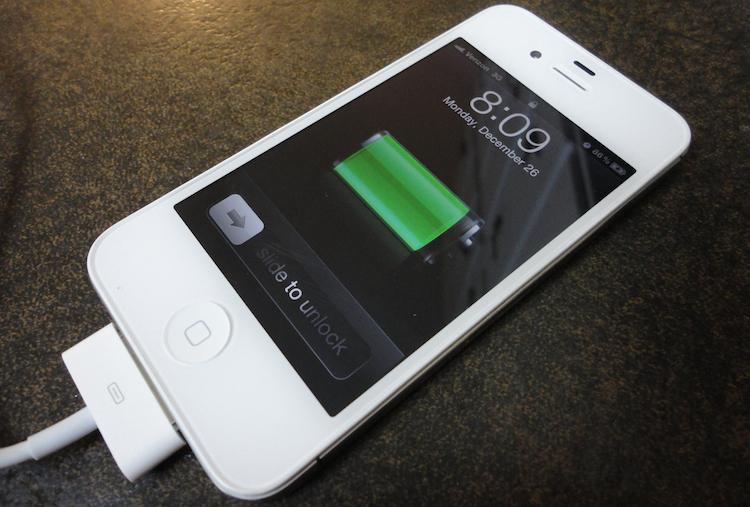
Just yesterday, my article detailing the top five things I'm looking forward to in 2012 was published. (Merry belated Christmas, by the way.) If you haven't read that article yet, I'm about to spoil it for you. The five things of 2012 that I'm looking forward to are: the future of tablets (form factors, size, design, etc.), wearable smartphone peripherals, flexible phones, the iPhone 5 and mobile camera technology. Despite the fact that these are the things that I look forward to the most, many of you threw a red flag and asked why I didn't include better battery technology.
Many of you probably know how hard I am to please when it comes to battery. I can't remember a phone that I've been completely content with in battery life since my BlackBerry Curve 8330, which would usually last for days on a single charge. I guess you could say that BlackBerrys of yesteryear spoiled me. But since I've made the switch and now carry Android and iOS devices full-time, coping with mediocre battery life has simply come with time.
Am I okay with only being able to muster a day of use out of my Galaxy Nexus? Well, no. And the iPhone 4S isn't much better at a day and a half, at best. But I deal with it by always carrying a 7,000 mAh battery pack in my backpack and plugging in when and where I can. You take what you can get, right?
Many of you also know that I am always on the lookout for new technology, especially new battery technology. So why wouldn't I include this in my top five list? I'm glad you asked, to be honest.
Mainly, I just don't think 2012 will be the year for a breakthrough. Let's be clear here, there are "breakthroughs" in mobile battery technology on nearly a monthly basis. Research groups around the world are constantly crunching numbers and running tests on "the battery technology that will change mobile computing." I'm sure all of these findings will eventually amount to something. For instance, flexible and transparent batteries are what will make flexible and fully transparent devices possible in years to come – maybe even next year. Discoveries like these are necessary and pretty intriguing, but they don't hit where it matters most: longevity.
It seems as if every week I'm reading another headline that states something along the lines of, "Breakthrough in battery technology leads to 10 times the capacity in same space, half the charge time." Not every breakthrough claims the same thing, but the gist is similar. There have been countless "breakthroughs" this year alone, yet not a single one (to my knowledge at least) has made it to a consumer product and truly made a notable difference.
As noted by the Mashable earlier today, the US Patent & Trademark Office (USPTO) published two patents granted to Apple for hydrogen fuel cells in mobile devices. By converting oxygen and hydrogen to water, heat and electricity, Apple plans to make their Macs and iDevices last much longer on a single charge while reducing the footprint of the battery itself. Stan Schroeder of Mashable explains that hydrogen fuel cells are nothing new, but that Apple has discovered (hence the patent) a way to make them more efficient, compact lightweight and less expensive. Such batteries are expected to last "days or even weeks without refueling," says Apple.
Again, all of this seems promising – any improvement in this area usually does. But I'm not holding my breath for hydrogen fuel cell-powered iDevices to make it to market. For all we know, this technology could be years from actually hitting shelves.
I, like most of you, am (im)patiently awaiting a major improvement in the battery life of mobile devices. But I have a feeling years to come are going to be all about making existing devices bigger, better and faster, that is, until a revolutionary battery technology is ready for prime time. I can't force myself to believe 2012 will be that year. I may be wrong, and I truly hope I am. I want some company to blindside me with a week long battery life on a single charge for a cell phone. But until something happens on that scale – an improvement measured in days, not hours – I could not care less.
What about you, ladies and gents? Do you think 2012 is the year for major battery technology improvement? Or will 2012, like the last few years, be a stagnant year for battery tech? If any, which "breakthroughs" that you've come across seem most promising to you?